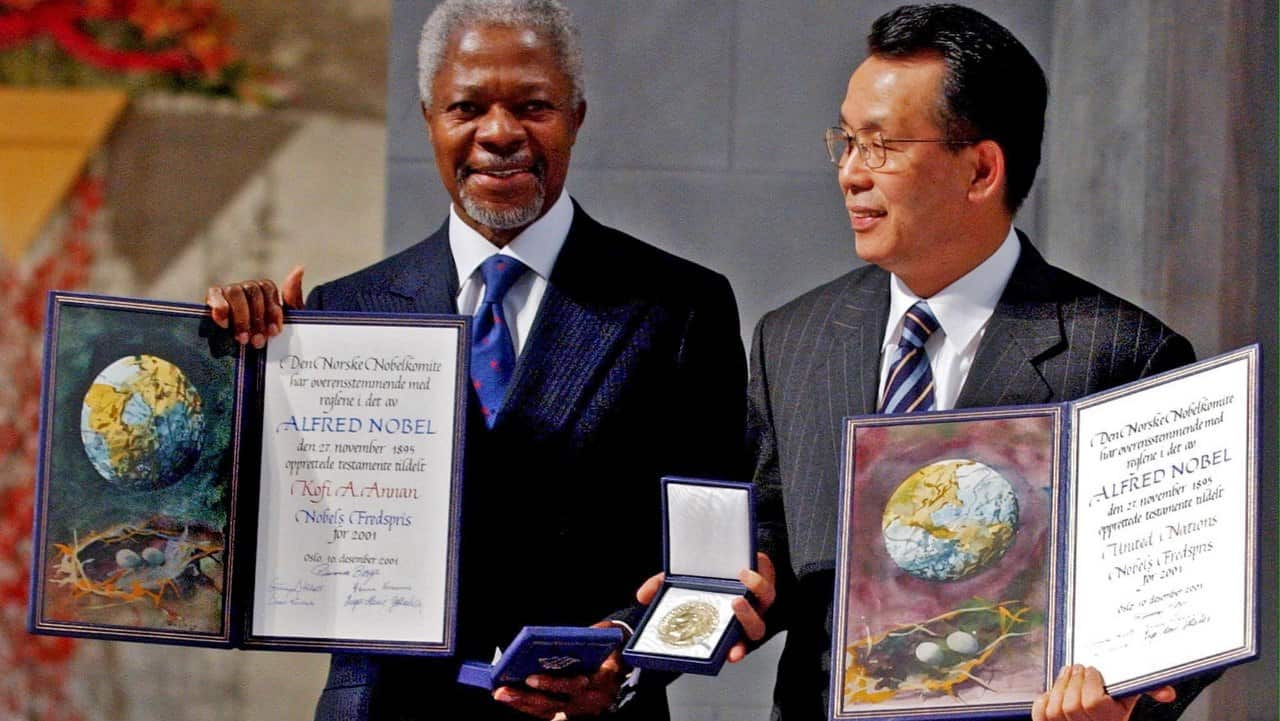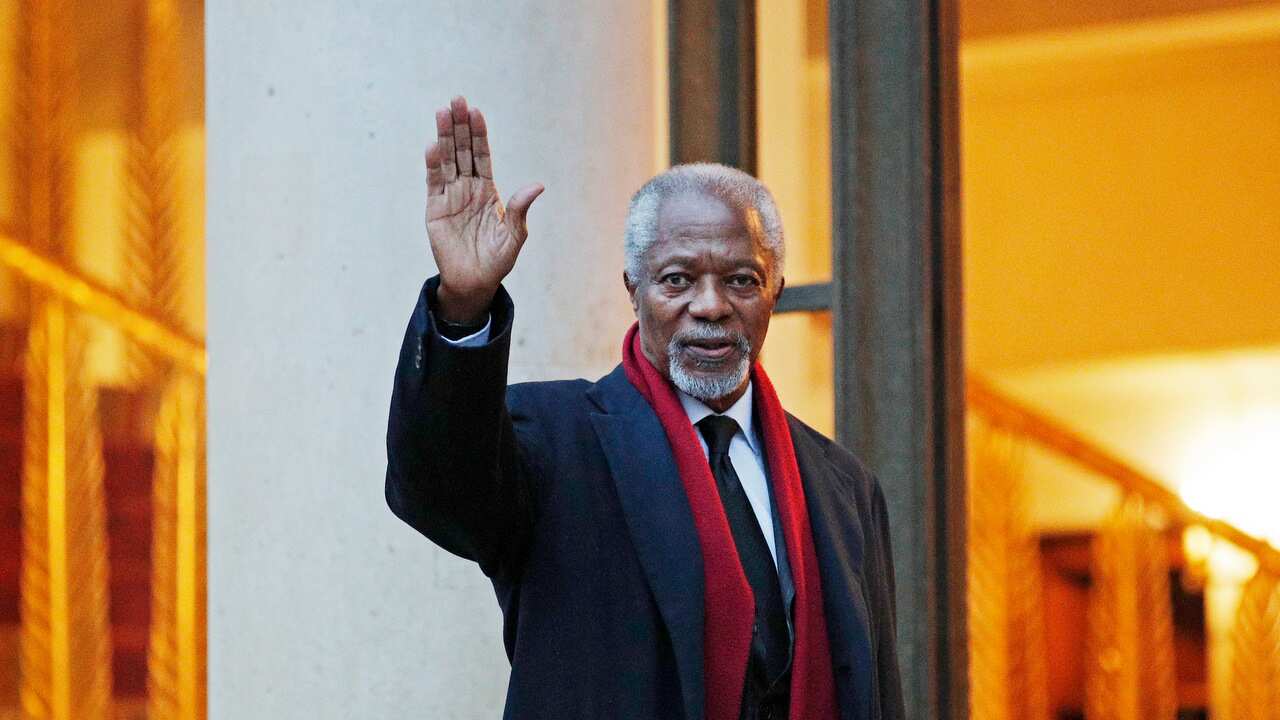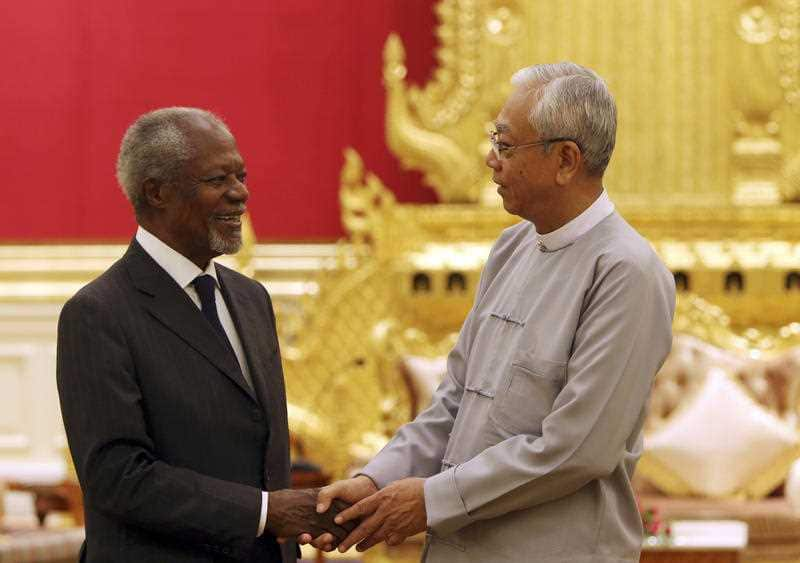One of the most celebrated diplomats of our time, Kofi Annan’s career spanned five decades. From the Rwandan Genocide to the war in Syria, here are some of his successes and challenges.
‘Bitter regret’: Rwandan genocide
Just over a year into his term as the UN’s head of peacekeeping operations, Kofi Annan was confronted by one of the darkest chapters in modern African history.
According to UN figures, 800,000 people died in the 1994 Rwandan genocide.
Mr Annan would later express regret at the UN’s failure to prevent the massacre, acknowledging that his actions had not been sufficient.
On the 10th anniversary of the genocide, he said "the international community failed Rwanda and that must leave us always with a sense of bitter regret".
Srebrenica massacre
A year later, one of the worst massacres in Europe since World War II would take place.
In 1995, known as the Srebrenica massacre, Bosnian Serb forces rounded up and killed thousands of Muslim men and boys.
The international community, including the UN, were criticised for its failure to prevent the atrocities.
Mr Annan would later write that both Rwanda and Srebrenica, "left me with what would become my greatest challenge as secretary-general: creating a new understanding of the legitimacy, and necessity, of intervention in the face of gross violations of human rights".
Nobel Peace Prize
In 1997, Mr Annan became the UN's seventh secretary-general, the first from sub-Saharan Africa.
Shortly after his appointment, he pushed to transform UN management, issuing a comprehensive reform agenda, entitled 'Renewing the United Nations.'

Under his watch, the organisation won a Nobel Peace Prize.
He was a co-recipient, along with the UN, of the world's most prestigious peace award in 2001 for his “work for a better organised and more peaceful world”.
A new millennium
In 2000, still serving as the UN secretary-general, Mr Annan issued what is known as the 'Millennial Report'.
Entitled "We the Peoples — The Role of the United Nations in the 21st Century," the paper laid out a plan for the organisation in the age of globalisation, calling for reform in it's operations.
The report set out specific goals and program initiatives, including a path to alleviating poverty and ways to improve the quality of life for people in cities and villages across the globe.
Promoting peace
In 1998, Mr Annan helped to promote the transition from military to civilian rule in Nigeria.
He also served as a key figure in Timor Leste independence from Indonesia in 1999.
Mr Annan was instrumental Israel’s withdrawal from Lebanon in 2000, and in 2006, his diplomatic efforts helped bring peace between Israel and Hezbollah.

Global Compact
On 26 July 2000, the United Nations Global Compact was launched at UN headquarters in New York.
The framework established ten core principles in the areas of human rights, labour, the environment and anti-corruption, which companies commit to.
It's since grown into the world's largest effort to promote corporate social responsibility.
Syrian conflict
In 2012, Mr Annan became the UN special envoy to Syria, in which he established six-point plan for peace.
In it, he pushed for an end of the use of heavy weapons and urged all sides to pull back military deployments in and around population centres.
But as the conflict drew out, and with no end in sight, he resigned seven months in, citing the failures of world powers to fulfil their commitments.
Rohingya crisis
Mr Annan's most recent role was leading an advisory commission in Myanmar on the crisis in Rakhine state, where last year, more than 700,000 Rohingya were driven out in an army campaign.


